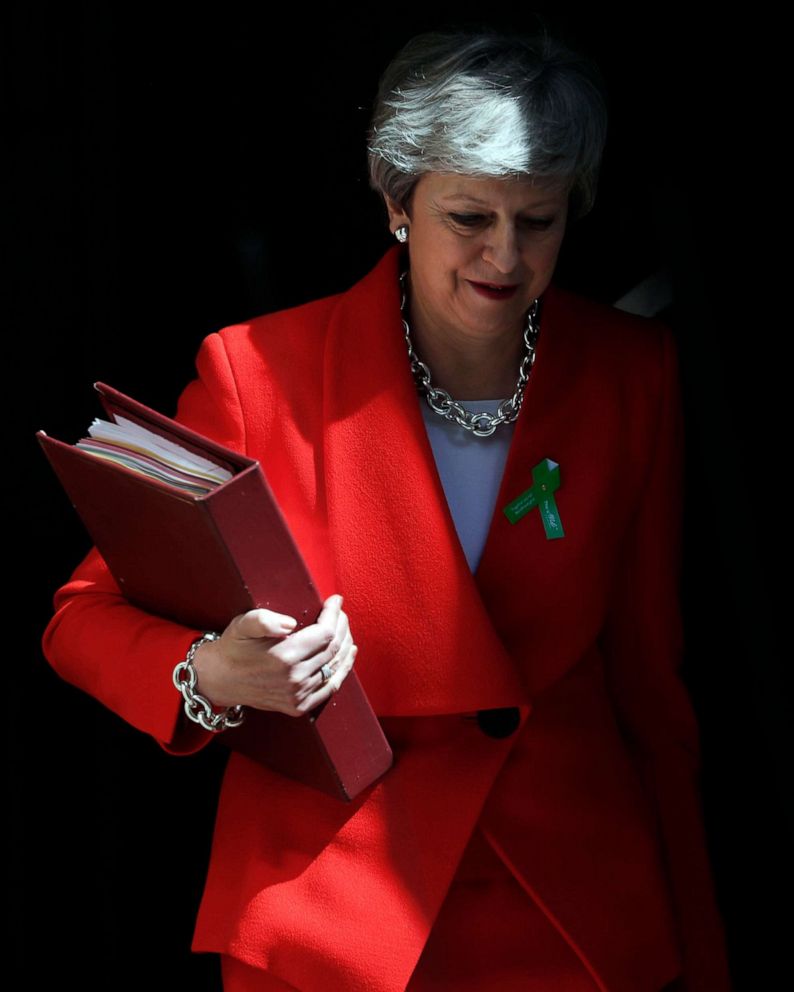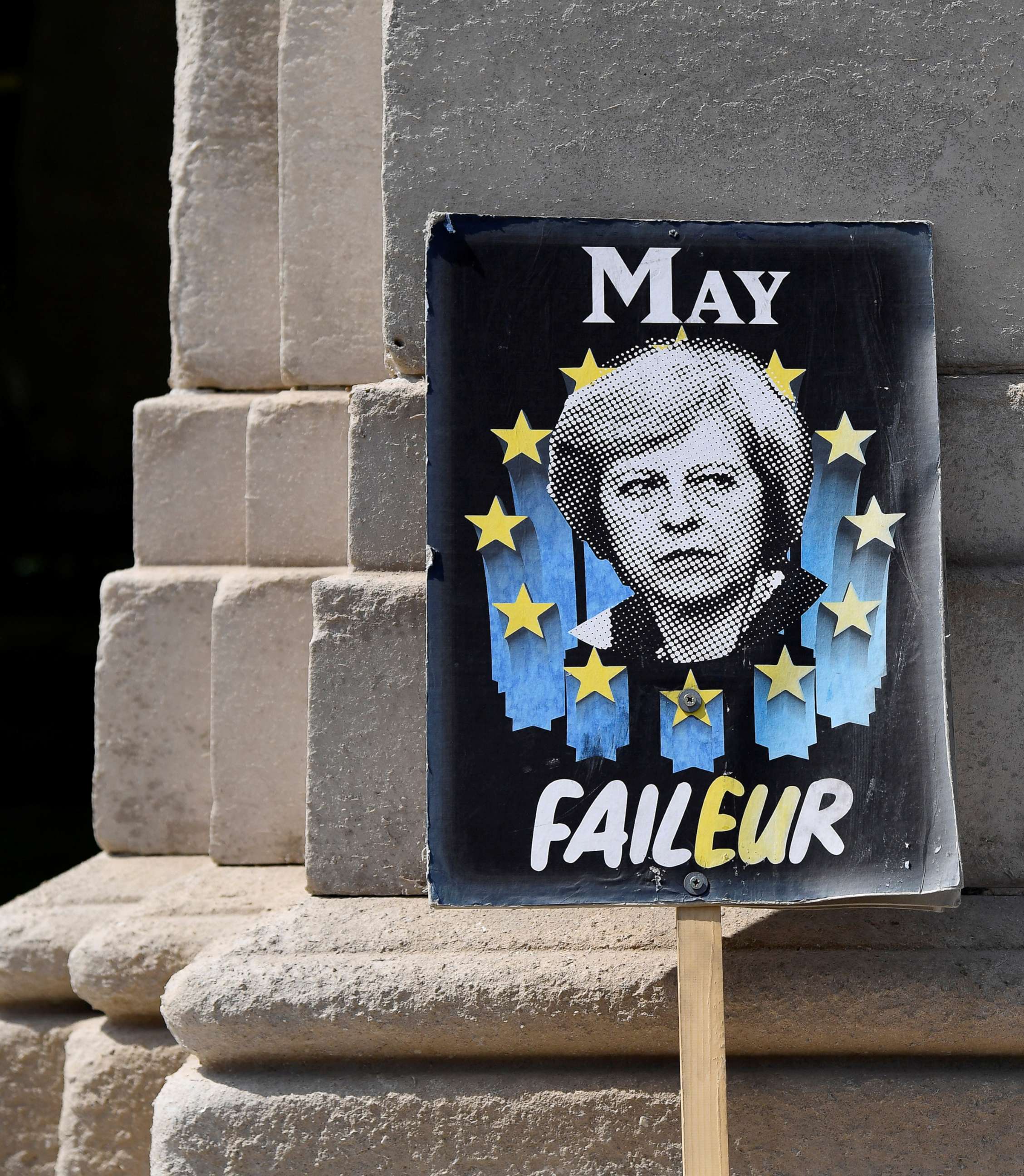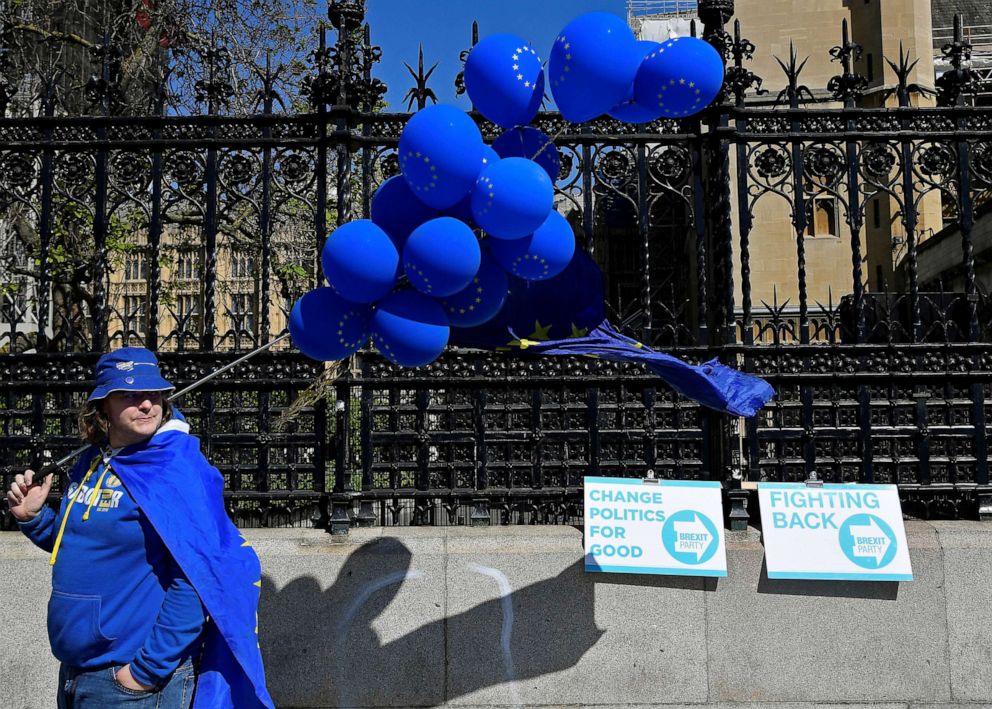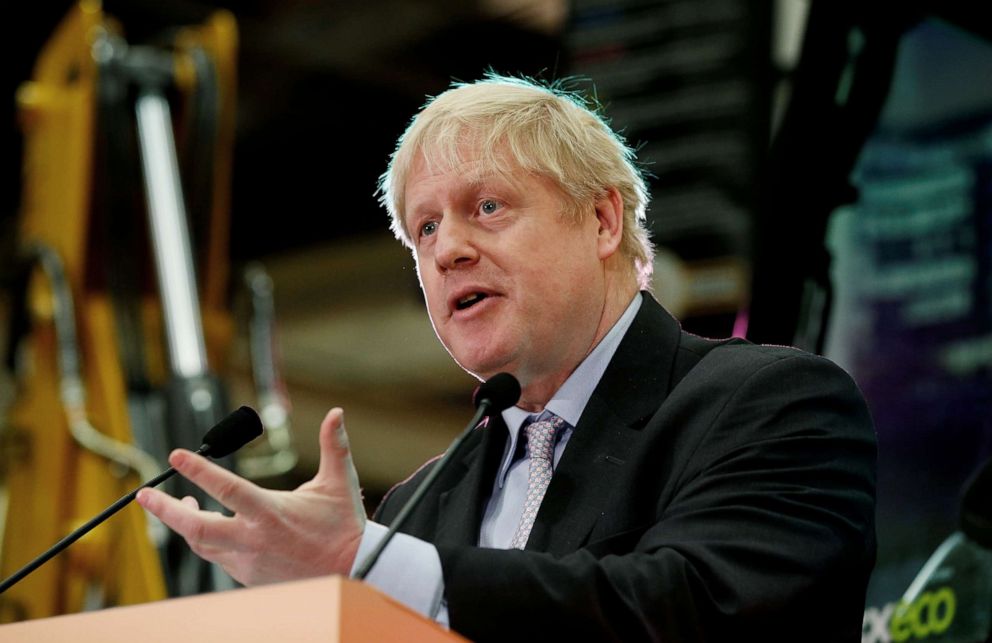Theresa May agrees to 'timetable for departure' as cross-party Brexit talks collapse: Reports
The prime minister could step down by as early as June 30.
LONDON -- The U.K. Prime Minister Theresa May looks set to step down in June or July after a meeting with disgruntled lawmakers that left her "tearful," according to British media.
In the Thursday meeting with the 1922 Committee, an influential group of Conservative lawmakers from her own party, the prime minister agreed to step down if her Brexit deal is voted down when she brings it to the House of Commons in the week beginning June 3.
Senior political sources told the BBC she promised to resign if the vote fails and that it was "inconceivable" May would stay in power after the next vote.

The Daily Telegraph, a newspaper favoring Brexit, reported the meeting was "emotionally charged" and that Prime Minister May will step down by June 30 at the latest.
However, the BBC reported an exact date has not been set and that the prime minister had only agreed to a "timetable for departure."

The prime minister had previously said she would resign if her Brexit deal, which has been voted down three times this year, was accepted by British lawmakers.
That announcement was an attempt to get more lawmakers to side with the deal, but it now seems that whatever happens, a new prime minister will be in place by the deadline for the U.K. to leave the European Union on Oct. 31 of this year.

It is not only the prime minister's own future at stake. May had spent the last six weeks negotiating with Jeremy Corbyn in a bid to find a compromise agreement that would pass through the House of Commons.
Friday, the talks broke down, with Corbyn saying the negotiations "have gone as far as they can" in a letter to the prime minister.
This means that when Parliament votes again on Brexit next month, the deal will effectively be the same as the one defeated by a historic margin in January and again in March.
May's Brexit deal has come under criticism from lawmakers of all political persuasions. Some suggest the deal will leave the U.K. too closely aligned to the EU, while others believe the deal will damage the U.K.'s economy.
Conservative lawmakers within May's own party will spend the coming months jostling for positions. When she resigns, a leadership election will take place. Boris Johnson, the former mayor of London, has already put himself forward as a future candidate.

The current deadline for leaving the European Union is set at Oct. 31 of this year. The original date for departure was March 29, but the government were forced to ask the EU for an extension after they were unable to agree a deal, despite negotiating with the EU for the better part of three years.
If Parliament cannot agree a deal, the U.K. will leave a "no deal" Brexit, unless lawmakers decide to cancel Brexit entirely by revoking Article 50, the legal mechanism for leaving the EU.
The next vote on May's Brexit deal will be taking place the same early June week President Donald Trump, who has been critical of May's Brexit deal, embarks on a state visit to the U.K.




